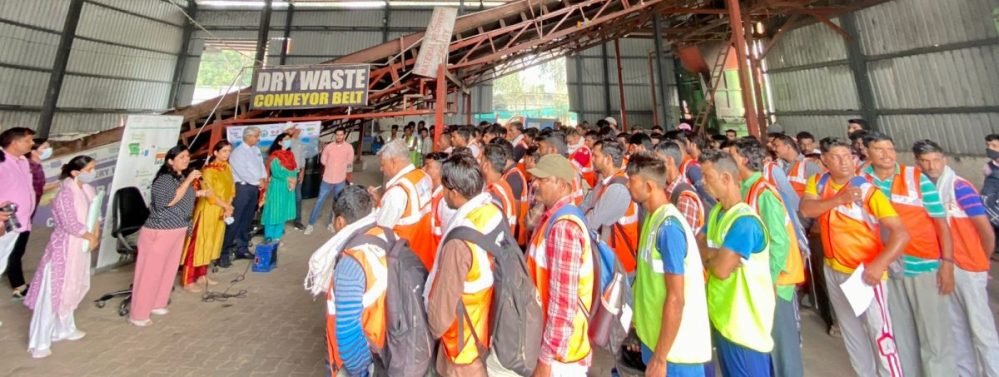Two training sessions were organised in the Delhi -National Capital Region recently for sanitation workers and waste pickers, as part of the project Building City leadership on clean air action in Delhi NCR, supported by the Clean Air Fund.
The first technical training session was organised for about 100 waste pickers and drivers of Ecogreen, an organisation responsible for managing waste in Gurugram, on the 4th of November in Gurugram. The session included discussions on solid waste, its sources, the role of waste pickers in the solid waste management chain, the importance of segregating, identifying, collecting and safe handling of different types of waste, and of its proper management. The training also sensitised the target group on achieving better air quality through their daily activities. At the end of the training, the participants acknowledged that their awareness about waste management and its links with air pollution had improved. Senior team members of Ecogreen appreciated the well-structured session and expressed interest in organising similar training for more staff. Representatives of Human Matrix, a facilities management company that is collaborating with Ecogreen on generating awareness about proper waste management practices under the Swachh Bharat Mission, also participated in the session.

In the second training event, jointly organised by ICLEI South Asia and Municipal Corporation of Delhi on the 17th of November, more than 70 sanitation workers were sensitised on the importance and ways of reducing air pollution being caused by the emissions from the solid waste management sector. The training aimed to mainstream the objectives of National Clean Air Programme and support the city government in adopting the right measures for improving air quality.
The workshop included information on the air quality index, associated health impacts and precautions to be taken to protect the health of people of different age groups when the air quality worsens. The activities and discussions also provided insights on the chain of waste generation, transportation and sustainable processing, and how it is linked with the risk of intensified impacts of certain cancers and respiratory diseases, particularly for people directly or indirectly involved in waste management or those living near waste sites.